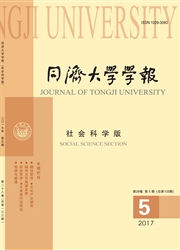

 中文摘要:
中文摘要:
在卡夫卡的作品中,时间叙事不仅仅是一种叙事技巧,更多的是一种哲学观念对文本的直接参与。卡夫卡的时间哲学构成其时间叙事体系内各部分之间的本质性关联。卡夫卡的时间叙事技巧与时间哲学在根本上具有不可调和的双重性悖反特征。就时间叙事艺术而言,对立物表现为运动与静止、循环与延宕、断裂与绵延;在更深的时间哲学层面,则是有关永恒与瞬间、艺术时间与日常时间、确定性与不确定性、行动与徒劳、希望与绝望、存在与虚无。
 英文摘要:
英文摘要:
This paper intends to discuss Kafka's narrative time and his philosophy of time.In Kafka's novels,narrative time is not merely a means of narrative technique —it is more a penetration of philosophical concepts into words.Therefore,Kafka's thoughts on time will be proved here to construct the essential structure which organizes the separate narrative parts.More importantly,both Kafka's narrative time and his philosophy of time assume a basic duality of paradox.The paper also manages to present Kafka's narrative time as a system of fundamentally binary oppositions.In the case of narrative time as a technique,the opposites listed are motion and stasis,recursion and stationing,segmentation and continuity.However,on a deeper level of time philosophy,the opposites embody the paradox between eternity and moment,narrative time and real-life time,action and void,hope and despair,and,most important of all,being and nihility.
 同期刊论文项目
同期刊论文项目
 同项目期刊论文
同项目期刊论文
 期刊信息
期刊信息
